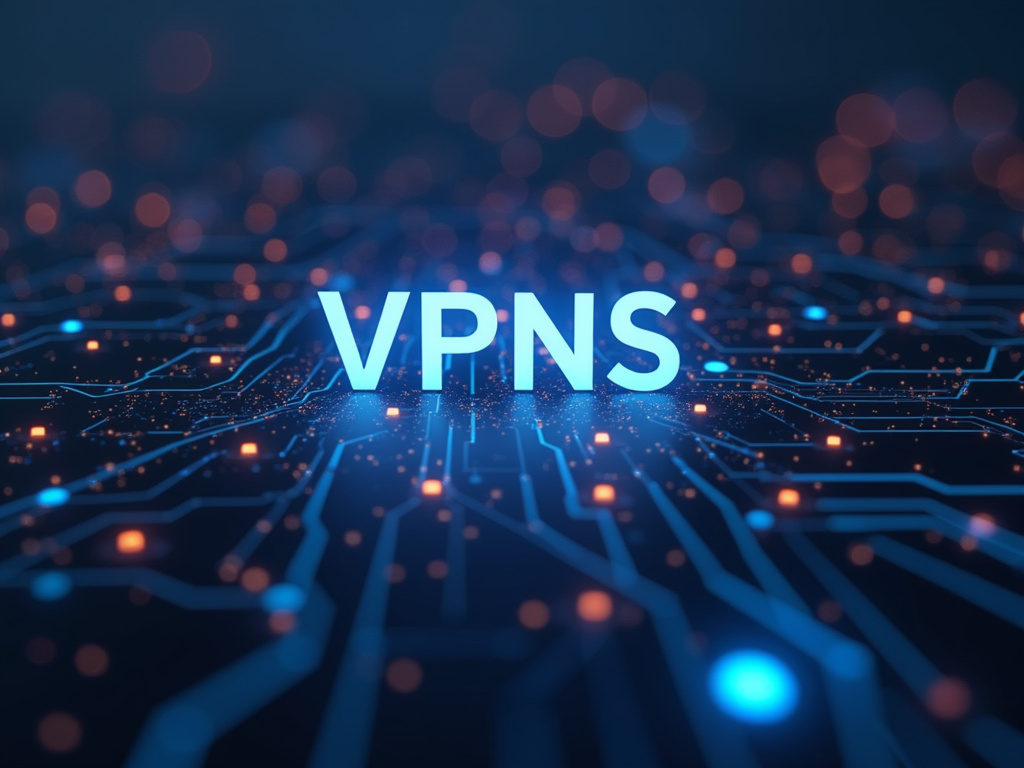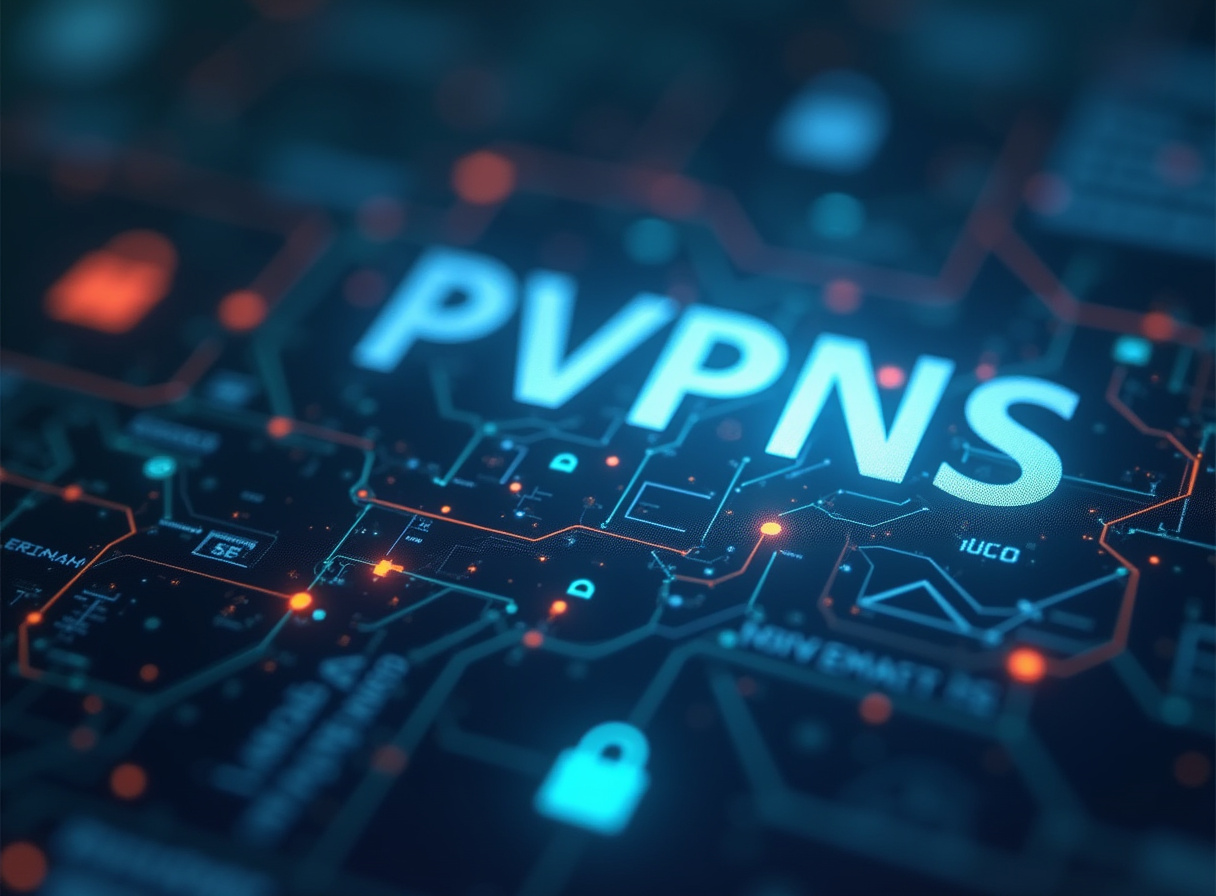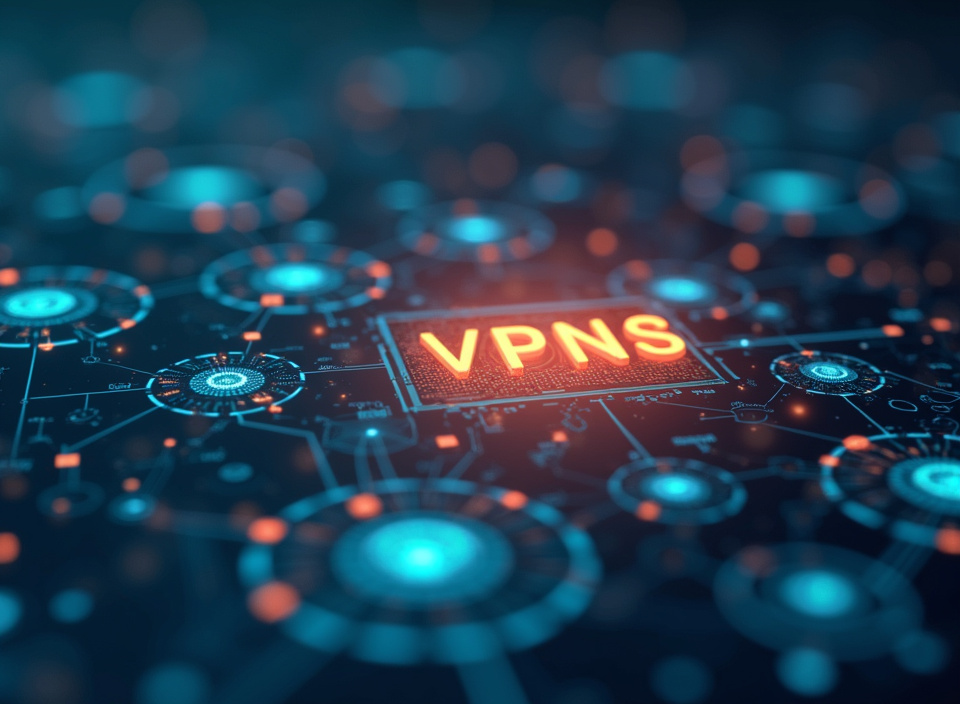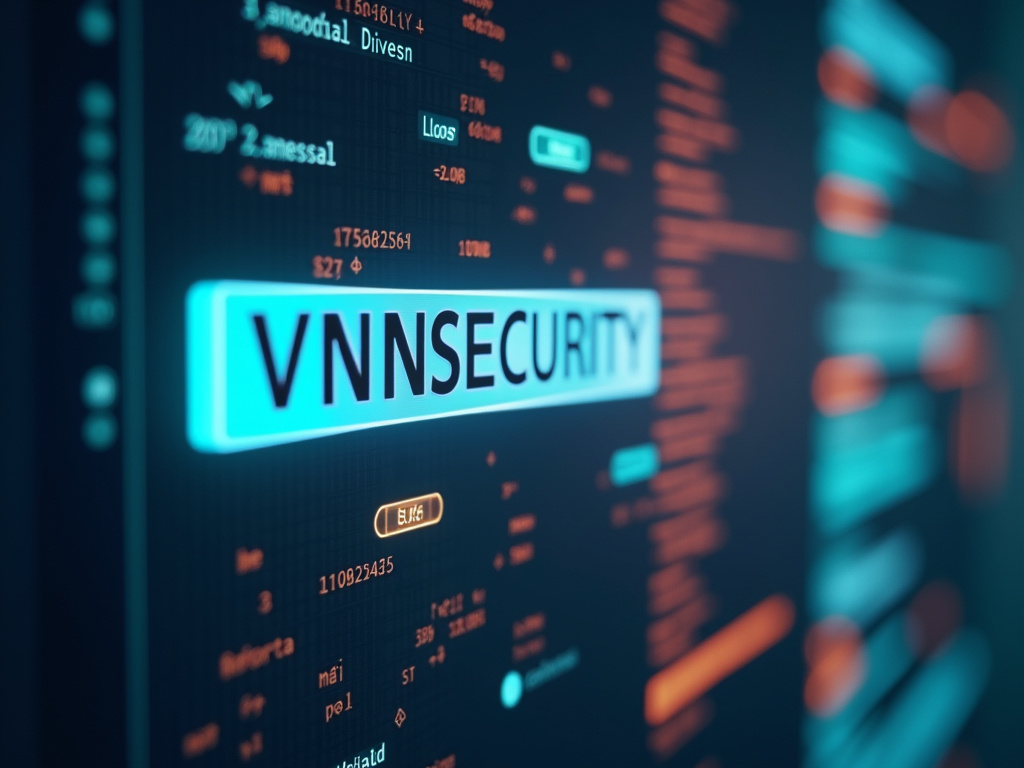VPNs for Higher Education Conferences: Securing Academic Exchange

Table of Contents
Introduction: The Growing Need for VPNs in Academic Conferences
The digital age has revolutionized higher education, fostering global collaboration and the rapid exchange of knowledge through conferences and academic gatherings. However, this interconnectedness also presents unique security challenges. Attendees often connect to unfamiliar networks, share sensitive research data, and engage in discussions that could be targeted by malicious actors.
These security concerns necessitate proactive measures to protect participant privacy, maintain discussion integrity, and safeguard valuable academic information. A crucial tool in achieving this protection is the adoption of Virtual Private Networks (VPNs). A VPN creates a secure, encrypted connection between a user's device and a remote server, effectively masking their IP address and encrypting their online activity.
This added layer of security is paramount when connecting to public Wi-Fi networks, which are common at conferences but often lack robust security protocols. By routing their internet traffic through a VPN server, attendees can prevent eavesdropping, data interception, and other man-in-the-middle attacks, ensuring that their personal and research data remains confidential. Imagine a scenario where a researcher is presenting groundbreaking findings at an international conference.
They connect to the hotel's Wi-Fi network, unaware that it is vulnerable to attack. Without a VPN, their presentation slides, containing unpublished data, could be intercepted by a competitor or malicious actor. This could lead to the theft of intellectual property, premature disclosure of research findings, and significant damage to the researcher's career and the institution's reputation.
The use of a VPN at education conferences is not merely a technical recommendation; it's a strategic imperative that safeguards the core values of academia: intellectual freedom, open discourse, and the pursuit of knowledge without fear of censorship or surveillance. The potential consequences of neglecting VPN use are far-reaching, ranging from compromised research data to reputational damage for institutions and individual scholars. Furthermore, academic security is about fostering an environment of trust and supporting the open exchange of ideas.
The absence of these security mechanisms can lead to a chilling effect, where researchers self-censor their contributions or avoid discussing sensitive topics altogether. This ultimately hinders academic progress and limits the potential for innovation. Therefore, implementing robust 'education conference VPN' solutions is an indispensable step towards creating a secure and trustworthy environment for academic exchange.
By addressing these vulnerabilities, higher education institutions can foster an environment of trust and security. This allows researchers, educators, and students to engage in open and productive dialogue without fear of their data being compromised or their privacy being violated. Ultimately, securing academic exchange through comprehensive security measures, including the widespread adoption of VPNs, helps safeguard the integrity of the educational process and contributes to the advancement of knowledge.
Educational institutions should consider providing or recommending secure VPN services to their conference attendees, thereby taking a proactive role in protecting their community's privacy and security. Such an initiative not only demonstrates a commitment to attendee protection but also upholds the institution's reputation for academic integrity and data security. In a world where digital threats are constantly evolving, taking proactive steps to protect academic participants is crucial for preserving the free flow of information and securing the future of academic collaboration.
The integration of VPNs into the conference experience is a significant stride in this direction, ensuring that ideas can be exchanged safely and securely, fostering an environment conducive to groundbreaking discoveries and innovative solutions. Protecting discussion integrity at academic conferences is crucial for maintaining the trust and credibility of the academic community. By implementing VPN solutions, institutions can create a more secure and confidential environment for intellectual exchange, thus enhancing 'academic security' overall.
The provision of a 'VPN for academics' at conferences should increasingly be seen as a standard practice, integral to the hosting of reputable and secure events.
Understanding VPNs: Protecting Data in a Connected World
The necessity of attendee protection at higher education conferences extends beyond simple data encryption. Academic gatherings often involve the sharing of preliminary research findings, unpublished data, and sensitive intellectual property. Without adequate security measures, this information is vulnerable to theft, espionage, and premature disclosure, all of which can have significant repercussions for researchers and institutions.
Imagine a promising study on a novel drug, presented at a medical conference. The data, still under development and unpublished, holds significant commercial value. Without a VPN, a competitor could intercept this data during a presentation or poster session, gaining an unfair advantage and potentially undermining the original researcher's work.
This scenario highlights the critical need for robust 'attendee protection'. A VPN provides a critical shield against these threats. By encrypting all internet traffic, a VPN prevents unauthorized access to the data being transmitted between attendees and online resources, such as conference websites, online databases, and cloud storage services.
This encryption effectively renders the data unreadable to potential eavesdroppers, ensuring that sensitive information remains confidential. Furthermore, VPNs can help protect against phishing attacks, which are a common tactic used by malicious actors to steal credentials and gain access to sensitive data. By masking the user's IP address and routing traffic through a secure server, a VPN makes it more difficult for attackers to target individuals with personalized phishing emails or malicious websites.
This added layer of security can significantly reduce the risk of attendees falling victim to these types of attacks. Consider a researcher receiving an email disguised as an official communication from the conference organizers, prompting them to update their login credentials. Without a VPN and a healthy dose of skepticism, they might unknowingly enter their password on a fake website, giving attackers access to their email account and potentially sensitive research data.
Additionally, VPNs can play a crucial role in preventing censorship and ensuring access to information in regions with restrictive internet policies. Conference attendees traveling from countries with limited internet freedom can use a VPN to bypass censorship filters and access the same online resources as their peers, promoting a more equitable and inclusive academic environment. The 'education conference VPN' acts as an investment in academic freedom and knowledge sharing, reinforcing the importance of open access to information.
This is particularly relevant for researchers studying politically sensitive topics or those who rely on access to international databases and journals. Moreover, the implementation of VPNs can facilitate secure remote access to institutional resources for attendees who are presenting research or collaborating on projects. By providing a secure connection to the institution's network, a VPN allows attendees to access files, databases, and other resources as if they were physically present on campus, enabling seamless and secure collaboration from anywhere in the world.
This secures 'discussion integrity' through constant and verified secured connections. Considering the increasing reliance on digital communication and online collaboration in academia, the use of VPNs should be considered an essential component of any conference security plan. This is especially important for international conferences, where attendees may be connecting from a variety of networks with varying levels of security.
Promoting the use of VPNs sends a strong message that the institution is committed to safeguarding the privacy and security of its attendees, thereby fostering a more trusting and productive environment for academic exchange. The strategic use of a 'VPN for academics' is not just about technical security; it's also about creating a culture of awareness and responsibility surrounding data protection. It encourages attendees to take proactive steps to protect their own information and reinforces the importance of cybersecurity best practices within the academic community.
By championing 'academic security' through VPN usage, institutions empower participants to engage fully in academic exchange with confidence and peace of mind.
Specific Benefits: Enhancing Security and Privacy at Academic Gatherings
The importance of maintaining 'discussion integrity' at higher education conferences cannot be overstated. These gatherings provide a platform for open and honest intellectual exchange, where researchers and scholars can freely share their ideas, challenge existing paradigms, and collaborate on new solutions. However, this open dialogue can be compromised by the presence of malicious actors seeking to disrupt discussions, spread misinformation, or steal intellectual property.
Imagine a scenario where a controversial research topic is being debated in an online forum associated with a conference. Without adequate security, malicious actors could infiltrate the discussion, spread false information, harass participants, or even attempt to steal valuable intellectual property. This can stifle open dialogue, discourage individuals from sharing their perspectives, and ultimately undermine the integrity of the academic exchange.
'Academic security' relies on the assurance of 'discussion integrity'. VPNs can play a crucial role in safeguarding discussion integrity by providing a secure and anonymous platform for online participation. In many conferences, online forums, chat rooms, and virtual meeting platforms are utilized to facilitate discussions and collaborations.
These platforms are often vulnerable to eavesdropping, hacking, and harassment, which can stifle open dialogue and discourage individuals from sharing their perspectives. By using a VPN, attendees can encrypt their online traffic and mask their IP address, making it more difficult for malicious actors to identify, track, and target them. This anonymity encourages more open and honest communication, allowing participants to freely express their ideas without fear of reprisal or harassment.
Furthermore, VPNs can help prevent Distributed Denial of Service (DDoS) attacks, which can disrupt online discussions and make it difficult for attendees to participate. By distributing traffic through a network of servers, a VPN can absorb the impact of a DDoS attack and keep the online platform running smoothly. This ensures that 'discussion integrity' is maintained even in the face of malicious attacks.
Consider a situation where a virtual conference platform is targeted by a DDoS attack, rendering it inaccessible to attendees. This not only disrupts the flow of information but also creates a sense of frustration and distrust among participants. By implementing VPN-based DDoS protection, conference organizers can mitigate this risk and ensure that the online platform remains available and accessible to all.
Moreover, VPNs can facilitate secure and confidential communication between researchers and collaborators working on sensitive projects. By creating a secure, encrypted tunnel between their devices, a VPN ensures that their communication is private and protected from eavesdropping. This is particularly important for collaborations involving confidential data, intellectual property, or sensitive research findings, which directly enhances 'attendee protection'.
The implementation of 'education conference VPN' solutions, combined with strong moderation policies and community guidelines, can create a more secure and inclusive environment for online discussions. This ensures that all participants feel safe, respected, and empowered to share their ideas and perspectives, fostering a more vibrant and productive academic community. Using a 'VPN for academics' is not just about technical security; it's also about fostering a culture of respect and inclusivity.
It sends a strong message that the institution is committed to protecting its members from harassment and abuse, thereby promoting a more equitable and welcoming academic environment. It is with this holistic approach that 'academic security' can truly be achieved.
VPNs for Services: Protecting User Data and Building Trust
Beyond the immediate benefits of protecting individual attendees and securing discussions, the strategic implementation of VPNs at higher education conferences contributes to a broader enhancement of 'academic security' and institutional reputation. Institutions that proactively address cybersecurity risks and prioritize the protection of their community members foster a culture of trust and responsibility. This, in turn, strengthens their reputation as leaders in innovation and academic excellence.
Consider the positive impact on an institution's image when it is known for hosting secure and trustworthy conferences, attracting top researchers and scholars from around the world. This enhanced reputation can lead to increased funding opportunities, stronger research collaborations, and a greater ability to attract and retain talented faculty and students. Conversely, institutions that neglect cybersecurity and experience data breaches or security incidents can suffer significant reputational damage, potentially losing the trust of their community and hindering their ability to attract top talent and funding.
Investing in robust VPN infrastructure and promoting its use among conference attendees demonstrates a commitment to 'attendee protection' and data privacy, differentiating the institution from its peers. This is particularly important in an increasingly competitive global landscape, where institutions are vying for the best researchers, students, and funding opportunities. By showcasing a strong commitment to cybersecurity, institutions can gain a competitive edge and attract individuals who value privacy and security.
Furthermore, the implementation of VPNs can contribute to compliance with increasingly stringent data privacy regulations, such as GDPR and CCPA. These regulations require organizations to take proactive steps to protect the personal data of individuals, and the use of VPNs can be a valuable tool in achieving compliance. By demonstrating a commitment to data privacy, institutions can avoid costly fines and legal penalties, and build trust with their community members.
Imagine a scenario where a higher education institution implements a comprehensive VPN program for its conference attendees, providing them with secure access to online resources and protecting their data from interception. This proactive approach not only enhances 'academic security' but also demonstrates a commitment to data privacy, positioning the institution as a responsible and trustworthy leader in the field. Moreover, the use of VPNs can facilitate secure collaboration between researchers and institutions located in different countries with varying data privacy laws.
By encrypting data in transit, a VPN ensures that sensitive information is protected from unauthorized access, regardless of where it is being transmitted. This allows researchers to collaborate on projects with confidence, knowing that their data is safe and secure. The active use of a 'VPN for academics' creates a safer more collaborative research environment.
The 'education conference VPN' solution becomes not just a security tool, but an enabler of global collaborative initiatives. From a logistical standpoint, institutions can partner with VPN providers to offer discounted or even free VPN access to conference attendees. This not only enhances 'academic security' but also provides a valuable service to attendees, making their conference experience more enjoyable and stress-free.
Educating conference attendees about the benefits of using VPNs and providing them with clear instructions on how to set them up can further increase adoption rates. This can be achieved through pre-conference communications, on-site workshops, and readily available technical support. By taking a proactive approach to education and support institutions can ensure that attendees are equipped to protect themselves and their data.
Ultimately, the strategic implementation of VPNs is more than just a technical solution; it is an investment in the future of academic exchange and the reputation of the institution. By prioritizing 'discussion integrity' and security, institutions create a safe, inclusive, and productive environment for researchers, scholars, and students to collaborate and innovate.
Looking ahead, the role of VPNs in securing higher education conferences is poised to become even more critical as technology evolves and cyber threats become increasingly sophisticated. The rise of artificial intelligence (AI) and machine learning (ML) is both a boon and a bane. While these technologies can enhance research capabilities and improve conference organization, they also create new avenues for malicious actors to exploit vulnerabilities and launch more targeted attacks.
Imagine AI-powered phishing campaigns that are virtually indistinguishable from legitimate communications or sophisticated malware that can evade traditional security measures. In this rapidly evolving threat landscape, VPNs will serve as an indispensable layer of defense, protecting attendees from increasingly sophisticated cyber attacks. The proactive use of a 'VPN for academics' is no longer optional, it's a necessity.
Furthermore, the increasing reliance on cloud-based services and Internet of Things (IoT) devices at conferences will necessitate even stronger security measures. Attendees are increasingly using cloud storage services to access and share research data and relying on IoT devices, such as smart badges and connected displays, to navigate the conference venue. These devices and services can create new attack vectors if they are not properly secured.
For instance, a compromised smart badge could be used to track attendees' movements and steal their personal data, or a vulnerable IoT device could be used as a gateway to access the conference network. VPNs can help mitigate these risks by encrypting the traffic from these devices and services and preventing unauthorized access. The 'education conference VPN' now has to address not only computer security, but the security of this entire ecosystem.
Moreover, the growing trend of virtual and hybrid conferences will further amplify the need for VPNs. As more conferences adopt a virtual or hybrid format, attendees will be connecting from a wider range of locations and networks, many of which may be insecure. VPNs can provide a consistent and secure connection to the conference platform, regardless of the attendee's location or network.
This ensures that all participants have a safe and equitable experience, whether they are attending in person or virtually. Maintaining 'discussion integrity' requires that remote attendees are just as protected as in-person attendees. To effectively address these emerging challenges, higher education institutions will need to adopt a more holistic and proactive approach to cybersecurity, integrating VPNs into their overall conference security strategy.
This includes not only providing VPN access to attendees but also educating them about the importance of cybersecurity and providing them with the tools and resources they need to protect themselves. Institutions can develop cybersecurity awareness training programs that educate attendees about common threats, such as phishing attacks and malware, and provide them with tips on how to stay safe online. They can also provide technical support to attendees who are having trouble setting up or using VPNs.
The 'attendee protection' strategy should be comprehensive. Furthermore, institutions can collaborate with VPN providers and cybersecurity experts to develop customized security solutions that are tailored to the specific needs of their conference attendees. This includes implementing advanced threat detection and prevention technologies, such as intrusion detection systems and firewalls, to protect the conference network from malicious attacks.
This collaboration and investment are invaluable for 'academic security'. By taking these proactive steps, higher education institutions can ensure that their conferences remain safe, secure, and productive environments for intellectual exchange. In essence, the future of higher education conferences hinges on a commitment to cybersecurity and a recognition of the vital role that VPNs play in protecting 'discussion integrity', safeguarding valuable academic information, and fostering a culture of trust and collaboration.
The commitment to providing a 'VPN for academics' and attendees is a tangible demonstration of an institution's value for security in the constantly evolving digital landscape.
Stay Updated
Get the latest VPN news, tips, and exclusive deals to your inbox.




